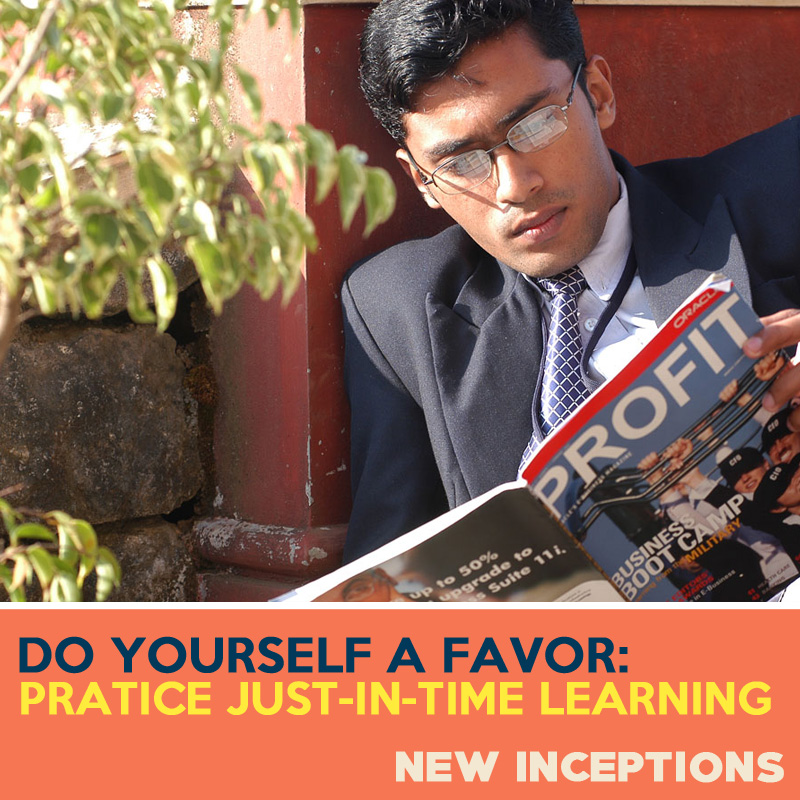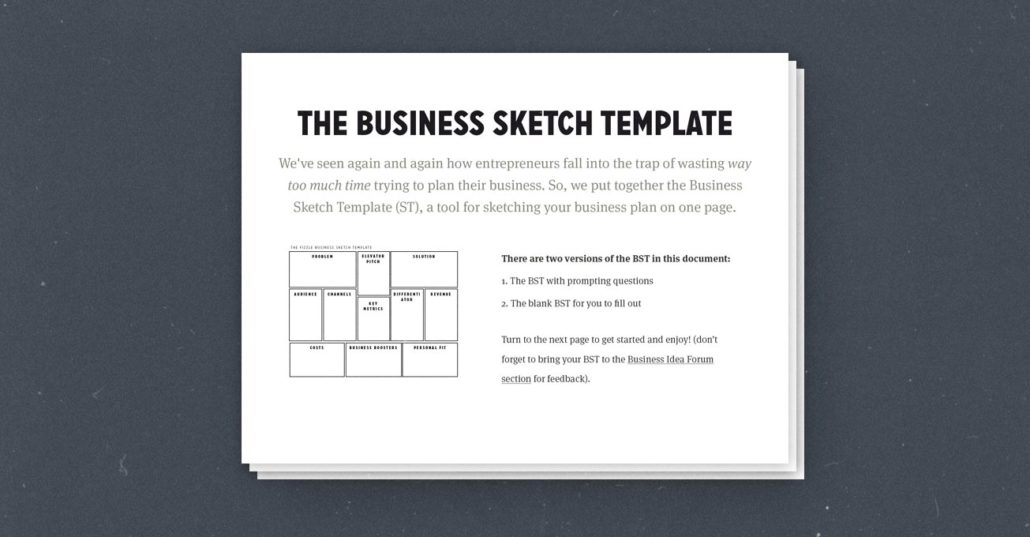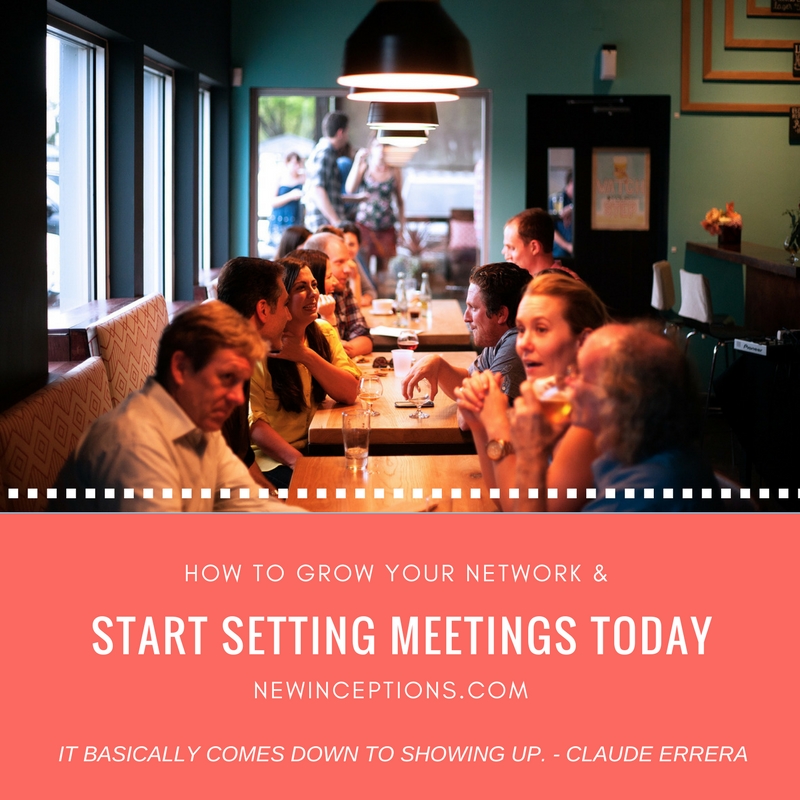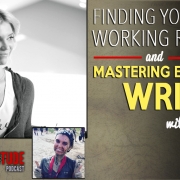4 Steps to Discovering Your Own Personal Mission
This past week, I had the opportunity to be a guest on Gregory Diehl’s podcast Uncomfortable Conversations with Gregory.
We talked about a number of things, but one of the key points we discussed was how so many people would be better off if they could simply put a mission in their lives.
This is a phrase I learned from speaker and author David Anderson and it’s been resonating with me ever since I watched his TEDx presentation as part of my prep for his AoL interview.
Sure I had heard of businesses having missions, but I never thought about how it could apply to individuals. Not only that, but it encapsulates basically everything we know about passion and purpose.
If a person has a mission – I feel they have these two things figured out. So it’s not necessarily about helping people find their purpose OR their passion. It’s about helping folks find the combination of the two.
Since I’ll be releasing this chat with David this week as session 92, I thought I’d touch on a bit more about the topic – and look at how someone can develop their own mission.
Be Aware that there is a Choice
For the longest time in my life, I had this feeling that my purpose in life was designated by forces outside of my control. I felt like I was at the mercy of the world around me.
It’s easy to believe this because the world around us is setup to make us feel like that. It’s learned helplessness. In the podcast with Gregory, we discussed how a lot of this problem is started with our current form of academia.
It makes sense as your typical 9 to 5 needs you to be compliant to the organization at large.
(It was this mentality which let me spend so much time in a major that while it made use of my skills, wasn’t really meant for me.)
Here’s the situation – many of these traditional jobs are on the verge of disappearing due to mega automation changes in the not too distant future.
Followers are going to have problems in this next economy, if they don’t figure out their own mission.
Religion doesn’t Necessarily Help
Over this past weekend, I thought about this mission dilemma more and more. During my travels around the state, I listened to a few more podcasts of Lewis Howes. One where he interviewed Rob Bell and another with John Gray. From these conversations, I realized that some organized religions might make their believers feel this way as well.
People go to church when they need support. I think it’s a great place to start. What Lakewood Church has done, whether you agree with the doctrine, has made going to church actually kind of cool.
However, as Rob Bell talks about in his chat, Jesus was all about reaching out to those with needs – not waiting for them to come to “the temple”. Not only did he go out and try to help the people where they were, he was very interested in the viewpoints of the people he was with.
This is very interesting to me. It seems very much like how a good coach works with their clients. They go out of their way to find people to help and not tell them exactly what to do.
On the other hand, Rob also goes on to discuss how many churches seem to focus mostly on teaching those that are there – not actively seeking new membership or engaging with folks who might actually need the support.
Again, this is backing that follower mentality.
This mentality is all around us. I just want you to know that you do have a choice to break free and do what you feel is important.
(If you’re into the study of Christianity at all, you should check out both of these interviews – especially Rob’s. Several revelations were discussed that I don’t think most people know.)
Start Action on Your New Journey
If you do opt to start on your new journey, you actually have to take action to get moving. Just because you choose to go this different route, doesn’t necessarily mean it will happen. You have to take action to do it.
For many people, including myself, this is the hardest step. Taking action.
Indirect Inspiration
For about 4 years I had an opportunity to pursue a new path – but tried to stay in the status quo for as long as I could. I had spent so much time getting my degrees, I didn’t want that time to go to waste. But slowly and surely, my new path made itself ever more present. I was just too chicken to pursue it; to step out and be different.
As I mentioned on the podcast with Gregory, it usually takes a deep pain or significant loss in one’s life to move people from the “comfortable / follow the rules” path to one where they’re setting the standard.
For me, it was the sudden loss of my mom which affected me this way. Besides myself, she was the only one at that point that I felt I had to prove that my life up to that point wasn’t a waste of time. She, herself, had put a lot of time and energy into my career – I couldn’t disappoint her.
Even if I personally felt I wasn’t a good fit for what I had been pursuing. Then when she passed, I realized that following that path didn’t really pan out for her – so I wasn’t going to make the same mistake.
Direct Inspiration
That said, it might need to take a more direct action to nudge us out of our current path.
Lewis had another interview with Andy Frisella. Who found, in about 30 seconds, his life’s path had completely changed. He went from being a normal guy to having a violent brush with death.
After being disfigured from a knife attack, he had to figure out how to spin his new look in a way that people would remember him positively. This completely changed who he was.
In both cases – things were suddenly and radically different. And as Andy said, you can either spend your time trying to get things back to “normal” or you can go an entirely different route.
He and I chose to go entirely new journeys on new routes.
Shift Your Locus of Control
Those routes were both dependent of our new circumstances. And they both came to us in a matter we didn’t have any control over. But does that mean that a bad situation has to happen to anyone who wants to control their own path?
Not necessarily.
What it does mean is that you need to shift your locus of control. Instead of letting the world guide the direction you’re going and what you’re doing, you need to decide that YOU are the one in charge of your own success.
You have to move from being a thermometer to the thermostat of your world.
Choose What’s Best For You
Now, as you know, I’m a huge proponent of entrepreneurship. But that doesn’t mean it’s the best course for everyone. Sure, I think anyone can do it (or be a part of it), but they need to believe they can perform in the arena themselves.
I feel, along with the other members of the New Inceptions team, that being an entrepreneur is a greatest example of someone expressing their own personal freedom when it comes to the work they do.
In a traditional 9 to 5, you’ll always have to report to a higher-up. But, at the same time, the success of the organization doesn’t solely ride on your ability to perform.
Whereas an entrepreneur, if they fail to perform and haven’t made the business passive income based, then the company is going to struggle.
So it’s really your decision on how much responsibility you want. For me, personally, I come from a family of movers and shakers, so it was fairly simple for me to make the leap once I had to make the decision.
If neither sound terribly great, you might prefer to be an intrapreneur (or something else in the middle). If you can find a company or institution which will allow to work at that capacity, it might be the best option for you. (That’s where several huge entrepreneurs started – so it’s not necessarily a one way ticket.)
Action Steps: Develop a Personal Mission Statement
Once you figure out where you want to be at and how you want to carry out your purpose, it might be helpful to develop a mission statement. That way if you need to be reminded daily or simply when times get tough what you’re working towards, you’ll have it available to remind you.
Again, be sure to check out David’s TEDx talk if you haven’t to seen it yet. And this week when session 92 is published, you’ll find out that he actually has another one on top of the one he mentioned in his talk.
Also, if you have figured out what your mission is (without or without an actual written statement), I’d love to hear it below!



















